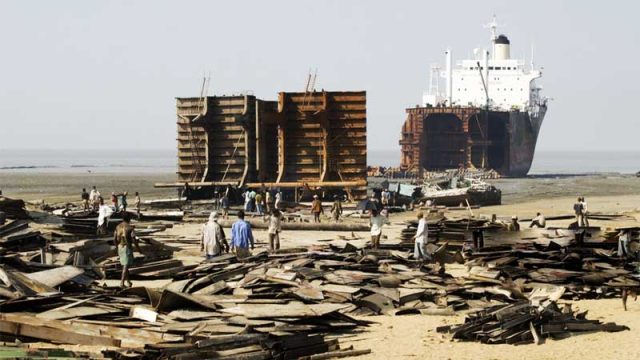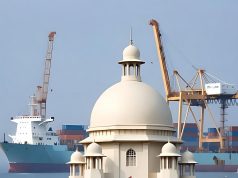By Kamrul Islam | From Chattogram
A major shift is coming to the global ship recycling industry in 2025. With the enforcement of the Hong Kong International Convention for the Safe and Environmentally Sound Recycling of Ships starting from June 26, 2025, the global ship-breaking industry will be compelled to align with stringent international standards for environmental protection and worker safety.
Under this landmark agreement, every ship set for dismantling must carry an Inventory of Hazardous Materials (IHM), listing all dangerous substances onboard. Recycling must be conducted using modern infrastructure and technologies that ensure safety for both workers and the environment.
⚠️ South Asia Under Pressure: Comply or Collapse
Currently, around 70% of global ship recycling takes place in three South Asian coastal countries: Bangladesh, India, and Pakistan. The industry largely depends on three major hubs: Sitakunda in Bangladesh, Alang in India, and Gadani in Pakistan.
However, most shipbreaking yards in these regions remain ill-prepared to meet the upcoming international standards. In Bangladesh, only 10–12 yards are partially aligned with green recycling norms. While Alang in India has made some progress, a majority of its yards still fall short of Hong Kong Convention compliance.
A yard owner in Sitakunda explained, “Upgrading our facilities to meet environmental laws is very expensive. Small and medium-scale operators simply can’t afford it. Many may be forced to shut down.”
He emphasized that government support and international investment are essential to keep the sector alive.
🌍 Global Watchdogs Demand Reform
According to A Senior Maritime Advocate ,“Much of shipbreaking in South Asia still happens in open yards, under hazardous conditions. It causes massive pollution and puts workers at extreme risk. The Hong Kong Convention is a game-changer.”
Experts warn that non-compliant yards will lose contracts from global shipping companies. European Union regulations under the EU Ship Recycling Regulation now allow dismantling only in pre-approved, environment-friendly yards.
As a result, China, Turkey, and European nations may grab the market share traditionally dominated by South Asia.
In contrast, countries like Japan, South Korea, and China have embraced the transition. Nearly all shipyards in China now follow dry-dock based recycling, ensuring safer and cleaner operations.
The Silver Lining: A New Industrial Future?
Amid this crisis lies a significant opportunity. As the world shifts towards eco-friendly practices, South Asia has a chance to emerge as a new green investment destination.
Bangladesh has already ratified the Hong Kong Convention and launched a joint “Ship Recycling Roadmap 2023–30” by the Department of Environment and the Department of Labour. This roadmap aligns with the upcoming global regulations but faces steep challenges in technology access, skilled manpower, and financing.
Experts argue that if Bangladesh receives adequate policy support and global collaboration, it can transform the sector into a sustainable export-oriented industry.
By mid-2025, the landscape of global ship recycling will undergo a major transformation. For Bangladesh, India, and Pakistan, the clock is ticking. If they fail to adapt through timely investment, regulatory upgrades, and innovation, they risk losing a strategic and foreign currency-earning industry—along with the livelihoods of thousands of workers.











